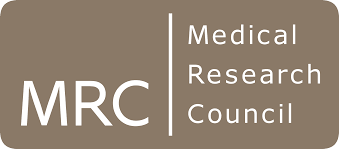
LSTM in partnership with Lancaster University has an opportunity for two MRC skills Development Fellowships.

LSTM is delighted to be able to offer, in partnership with Lancaster University, two MRC Skills Development Fellowship opportunities for early career researchers who have preliminary skills in a priority area but need further training to develop these skills, or who wish to obtain new skills in a priority area that is complementary to existing skills.
LSTM is an internationally recognised centre of excellence for research in tropical diseases. The creation of effective links with governments, organisations and institutions and responding to the health needs of communities allows LSTM to promote improved health, particularly for people of the less developed / resource poorest countries in the tropics and sub-tropics.

The priority skills areas that the scheme currently focuses on are: mathematics, statistics, computation, informatics, health economics and/or mixed methods research applicable to any biomedical or health related data sources, from molecular to population level. These skills can be applied across the full range of MRC’s remit relevant to translational research in Global Health, for example development of drugs, diagnostics, vaccines, vector control, disease control/elimination tools, public health interventions, health systems through to policy.
The Programme is delivered in partnership with the Centre for Health Informatics, Computing, and Statistics at Lancaster University. Dr Kevin Mortimer Reader and Consultant Respiratory Physician and Professor Giancarlo Biagini (Professor of Parasitology and Research Committee Chair) are the academic leads at LSTM and Professor Peter Diggle (Advanced Quantitative Skills) is the academic lead at Lancaster University.
The scientific theme for the LSTM-hosted MRC SDF is Global Health with a focus on translational and quantitative skills development.
The strategic aims are:
1) To develop a cadre of talented researchers who demonstrate leadership in translational research relevant to Global Health.
2) To develop researchers with the quantitative and interdisciplinary skills needed to work across the traditional phases of translational research.
3) To develop bridge scientists who can translate scientific innovation into beneficial impact on health for the World’s most vulnerable people and communities.
The successful candidates will undertake specific projects that are aligned to this programme with individually-tailored training elements embedded within them. On exiting the programme, it is expected that fellows will be well-placed to secure follow-on, competitively awarded funding to further their career development. Candidates must have finished, or be about to finish, their Doctoral training and have experience in discipline-relevant research methods, including experimental design, data collection, analysis and reporting.
Closing date: Monday 5th March 2018
To apply online click here
LSTM actively promotes an Equal Opportunities Policy